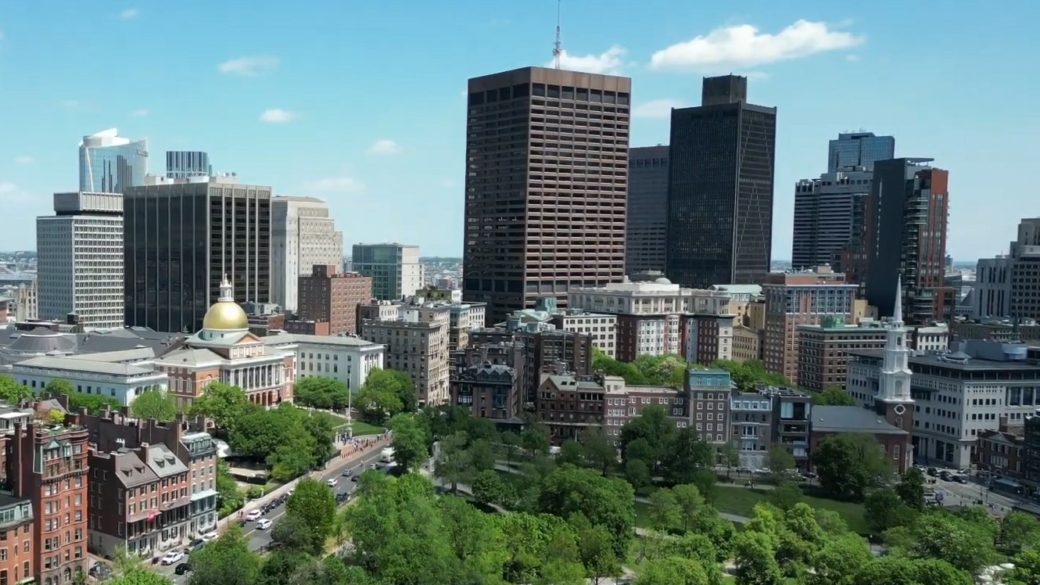Why Is Boston So Expensive?
As a city with rich history and renowned for distinguished universities, vibrant cultural landscapes, and a thriving economy, Boston boasts several attractions worth visiting. But the notoriously high cost of living makes things hard for people who live there and for those who visit. So why is Boston so expensive?
This article will closely examine 15 things that add up to Boston’s high costs. This will also give you a full picture of what makes the city seem expensive. Going into detail about each reason, the goal is to shed light on the different factors that impact the cost of living in or visiting this famous city.
1. Limited Land and High Demand
The fact that Boston is on a peninsula surrounded by water is a big reason its cost of living is so high. With the bit of land to build on, the population growing, and the economy doing well, there is a high demand for homes and businesses. Because of these things, developers and buyers compete hard for prime real estate, which drives up property prices.
Limited available land also results in vertical development, increasing construction costs, and further inflating property prices. This is a reason why Boston is so expensive, that there isn’t really a solution for.
2. Historical Preservation and Building Regulations
Boston’s appeal and charm largely come from its preserved history and beautiful architecture. But keeping these historical sites and buildings safe often costs a lot of money. Building rules that are too strict and preservation laws that are too strict can slow down new construction and lead to higher construction costs and housing prices.
Developers have difficulty figuring out how to add modern features to old buildings without weakening their structure. This can take a long time and cost a lot of money, so the prices of homes and rents in historic neighborhoods increase.
3. High Construction Costs
Boston’s construction costs are much higher than the national average. This is primarily because of strict building codes, expensive materials, and higher labor costs. The city’s building codes are strict about safety and the environment, driving construction costs.
Also, skilled workers in Boston want higher wages, and transportation costs and a lack of storage space affect the cost of materials. The high building costs are eventually passed on to buyers and renters, which means there are more expensive homes and apartments in the city.
4. Prestigious Educational Institutions
Some of the best universities and colleges in the world are in Boston. These include Harvard University, the Massachusetts Institute of Technology University, Boston University, and Tufts University. Students, faculty, and staff from these schools always look for places to live in and around the city. Because of this high demand and the high status of these places, property values and rental costs in the area skyrocket.
Also, the presence of top universities creates a highly skilled and educated population, which brings in businesses and raises the demand for housing.
5. High Salaries and Skilled Workforce
People who work in the Greater Boston area are usually well-educated and skilled professionals who make more money than the national average. High incomes have a big effect on the cost of living in a city because landlords and businesses have to change their prices to meet the needs of a high-income population. Also, industries that make a lot of money, like technology, biotech, healthcare, and finance, compete for the best workers. This leads to frequent salary increases and a rising cost of living.
6. Strong Economy and Job Market
As mentioned earlier, industries like technology, biotech, healthcare, and finance provide many jobs and fuel Boston’s robust economy. These industries attract professionals from all over the world, which increases the flow of talent and competition for jobs. As a result, wages increase, and the city becomes more expensive to live in.
A strong economy and low unemployment rate make people even more interested in buying and renting homes and businesses, which drives up property values and rental rates. The city’s strong economy keeps the cost of living high, which leads to a cycle of growth and prosperity.
7. High Taxes
Massachusetts is known for its high tax rates, and the city of Boston is no exception. Property, income, and sales taxes all factor into the city’s cost of living. Even though these taxes are needed to pay for essential services and infrastructure, they can burden locals and tourists.
Businesses may not want to move into the city if taxes are too high, which could mean fewer jobs and higher prices as businesses pass on their higher tax costs to customers.
8. Expensive Utilities
The cost of utilities in Boston is higher than the national average. Electricity, gas, and water all add to the cost of living in the city. Costs can increase because of aging infrastructure that needs regular maintenance and upgrades.
Also, Boston’s cold winters and hot summers require more heating and cooling, which uses more energy and adds to the high cost of utilities in the city. Residents often have to deal with these higher costs every day as a normal part of life.
9. Costly Transportation
The Massachusetts Bay Transportation Authority (MBTA), Boston’s public transportation system, is notorious for its costly fares and frequent service disruptions. Due to financial constraints and the necessity of refurbishing and upgrading antiquated infrastructure, commuter fares have risen recently. Also, the costs of owning and maintaining a car in the city, like high insurance premiums, parking fees, and gas prices, add to the financial stress.
These transportation costs add a lot to the overall cost of living in Boston, making it harder for people to pay for other essential things.
10. High Quality of Life
Boston boasts a high quality of life, thanks to its excellent public schools, world-class medical facilities, and an abundance of cultural and recreational activities. But this high quality of life comes at a cost, as it costs more for residents to use these services and amenities. Maintaining parks, public spaces, and cultural institutions costs a lot of money, which often means that taxes and fees will go up. So, residents must pay more to enjoy the many benefits of living in the city. This is a major reason as to why Boston is so expensive.
11. Tourism
Boston is a very popular place for tourists to visit. Every year, millions of people worldwide come to see its rich historical and cultural sites and famous sports teams. But because of the constant flow of tourists, demand goes up for hotels, restaurants, and other services. This causes prices to go up, which affects both locals and tourists.
Also, the increase in tourism puts a lot of stress on the city’s infrastructure, which means that transportation and public amenities must be updated often. Unfortunately, this also contributes to the already high city living cost.
12. Gentrification and Rising Home Prices
Over the past few decades, gentrification has happened in a few of Boston’s neighborhoods. This is because developers and investors have bought and fixed up older homes, which has caused prices and rents to go up a lot. Unfortunately, this practice has forced many long-time residents out of their homes, which has added to the already high cost of living in the city.
People who are forced out of their homes are forced to look for more affordable housing in nearby neighborhoods, which makes gentrification affect those areas as well. As a result, this trend also affects the prices of homes in the areas around it. Home prices in the state of Massachusetts has increased by over 4% from 2022 to 2023. This has resulted in the majority of Boston residents renting their homes, instead of owning them.
13. Healthcare Costs
Massachusetts is known for having some of the best healthcare facilities in the country, and Boston is no different. Even though medical care is of very high quality, it still costs money. The city’s healthcare costs are higher than the national average, adding to Boston’s already high cost of living.
Also, the area has a lot of well-known hospitals and research facilities, which require a highly trained healthcare workforce. This could lead to higher wages and healthcare costs for locals.
14. Expensive Recreation and Entertainment
Boston has many things to do for fun and relaxation, such as great museums, theaters, live professional sports, and music performances. But the cost of getting to these places can be a problem. People say that the city is expensive because it has high ticket prices, expensive places to eat, and high costs for a night out.
This cost shows how much money is needed to keep the city’s thriving arts scene and many entertainment venues running and managed. So, both Boston residents and tourists will have to pay more to enjoy the city’s many cultural offerings.
15. Inflation
Inflation has an impact on Boston in the same way it does on many other major American cities. As wages go up and prices of goods and services go up, the city’s total cost of living can also increase over time.
Changes in the global economy and changes in monetary policy are two examples of things that can affect the inflation rate. As prices keep increasing, people may find it hard to keep up their standard of living without dealing with more financial stress.
Conclusion – Why Is Boston So Expensive?
Why is Boston so expensive? Boston’s high cost of living is the result of many interrelated factors. From limited land and high demand to strict building codes and high construction costs, Boston’s geography and regulations make developing, maintaining, and upgrading properties expensive.
Also, the city’s prestigious universities, high-paying industries, strong economy, and desirable quality of life drive up salaries and property values, increasing the cost of living. High taxes, expensive utilities, transportation costs, and rising healthcare expenses all add to the overall expense of living in Boston.
So, residents and visitors of Boston have to deal with the city’s high cost of living, which can be a big problem. Still, Boston is a popular and thriving city that has a lot to offer people who are willing to pay the price.


